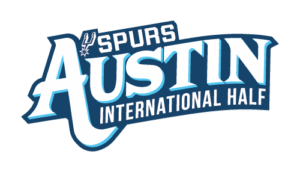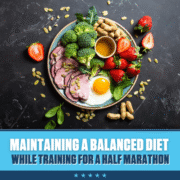Maintaining a Balanced Diet While Training for a Half Marathon
When you’re logging long runs and tackling tempo workouts, your body needs more than determination—it needs fuel. A balanced diet is the backbone of half marathon training, helping you power through workouts, recover efficiently, and stay healthy all season long.
Forget fad diets or restriction—performance nutrition is all about giving your body what it needs, when it needs it. Let’s break down the key macronutrients: carbs, protein, and fats— and how to build meals that support endurance and overall well-being.
Carbohydrates: Your Main Source of Energy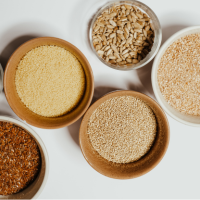
Carbs are a runner’s best friend. They’re your body’s preferred energy source—especially during long or intense efforts. When you eat carbs, they’re stored in your muscles and liver as glycogen, which fuels every stride.
How Much You Need:
Aim for 50–60% of your total calories from carbs during training. Increase your intake before long runs and workouts, and don’t forget to refuel afterward.
Great Carb Choices:
- Whole grains (brown rice, oats, quinoa)
- Fruits (bananas, berries, oranges)
- Starchy veggies (sweet potatoes, corn)
- Legumes (beans, lentils)
Quick Tip:
Before a run, focus on easily digestible carbs (like toast with peanut butter or a banana). After, combine carbs with protein to restock glycogen and repair muscles.
Protein: The Building Block of Recovery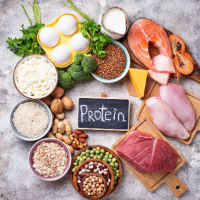
Running breaks down muscle fibers—protein rebuilds them. Getting enough helps reduce soreness, strengthen muscles, and support a faster bounce-back between workouts.
How Much You Need:
Most runners need 1.2–1.7 grams per kilogram of body weight daily. Spread it out across meals and snacks for best results.
Great Protein Choices:
- Lean meats (chicken, turkey, fish)
- Eggs
- Dairy (Greek yogurt, cottage cheese)
- Plant-based options (tofu, tempeh, beans, lentils)
Quick Tip:
Aim to include 20–30g of protein in your post-run meal to maximize recovery.
Healthy Fats: Endurance Support + Overall Health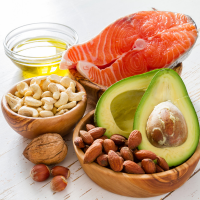
Fats often get overlooked, but they’re essential for long-term energy, hormone balance, and joint health—all crucial during high-mileage training.
How Much You Need:
Aim for 20–30% of total calories from healthy fats.
Great Fat Choices:
- Avocado
- Nuts + seeds
- Olive oil or coconut oil
- Fatty fish (salmon, tuna)
Quick Tip:
Avoid high-fat meals right before running (they digest slowly), but include them in your main meals for sustained energy and recovery.
Don’t Forget the Micronutrients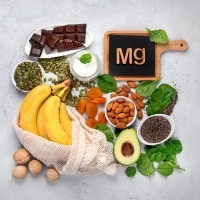
Vitamins and minerals play a big role in energy production, muscle function, and recovery. Make sure your diet includes:
- Iron: for oxygen transport (found in red meat, spinach, lentils)
- Calcium & Vitamin D: for strong bones (dairy, fortified plant milks, leafy greens)
- Magnesium & Potassium: for muscle function (bananas, nuts, sweet potatoes)
Colorful fruits and veggies = a simple way to cover your micronutrient bases.
Hydration: The Unsung Hero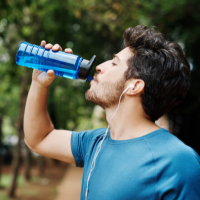
Dehydration can lead to fatigue, cramps, and slower recovery. Aim to drink water consistently throughout the day—not just during runs.
For runs over an hour, consider electrolyte drinks to replace sodium and other minerals lost through sweat (especially in that Austin heat ☀️).
️Sample Day of Balanced Eating
Here’s what a balanced training day might look like:
Breakfast:
Oatmeal topped with banana, almond butter, and chia seeds
Lunch:
Quinoa bowl with grilled chicken, roasted veggies, avocado, and olive oil
Snack:
Greek yogurt with berries and honey
Dinner:
Salmon, brown rice, and steamed broccoli
Post-Run Recovery Snack:
Chocolate milk or a smoothie with fruit + protein powder
Final Tip: Listen to Your Body
Every runner’s nutrition needs are unique. Use these guidelines as a foundation, but pay attention to how you feel. Hungry all the time? Add more carbs. Feeling sluggish? Check hydration. Sore after every workout? Boost your protein.
Balanced nutrition isn’t about perfection—it’s about consistency. Nourish your body, fuel your miles, and you’ll show up to the Spurs Austin International Half feeling strong, healthy, and ready to race.
Ready to fuel your best training cycle yet? Start building balanced meals today. Your body (and your finish line photos) will thank you.
